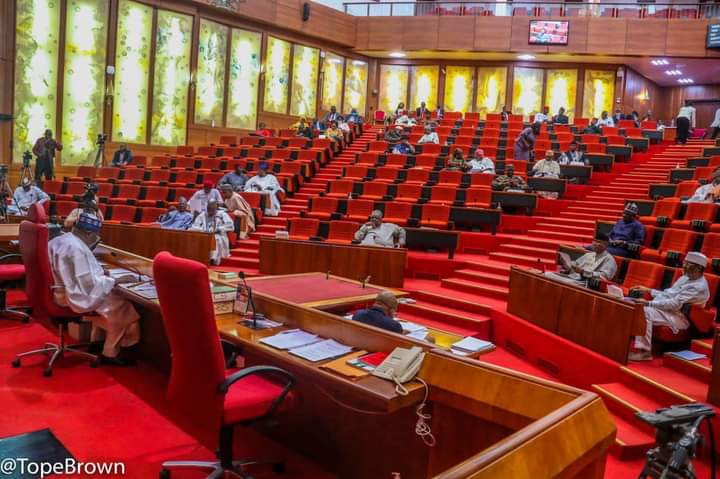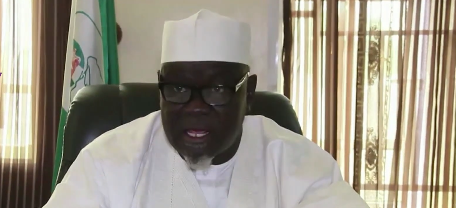In December 2021, Nigeria’s minister of labour and employment, Chris Ngige, proposed that the federal government should make health workers trained by the Nigerian government sign a bond of nine years during which they cannot consider relocating to another country. Ngige’s argument at the time was that medical personnel including doctors should not be allowed to leave the country at will after receiving training for free at public expense. Fast forward to April 2023, Nigerian lawmakers are proposing a law that will make medical and dental practitioners serve the country for five years before they can travel abroad to practise.
The lawmakers are advancing the same argument. Since medical doctors are trained almost free at government expense, they shouldn’t be allowed to take that skill to a country that does not contribute a dime to their medical education. Nigerians should enjoy the dividends of the government’s investment. Sounds logical? Surprisingly, the Nigerian citizens that should hail the bill have been its most critics. I guess, people just can’t trust these lawmakers. Or how can a House of Representatives that rejected a bill proposing to make it illegal for government officials to travel abroad for medicals in 2019 now come up with a bill to prevent medical practitioners from relocating when they want? It all sounds selfish!
Yet, we can’t deny the fact that there is an urgent need to stem the rate at which Nigerian medical practitioners are migrating abroad. Between December 2021 and May 2022 alone, 727 medical doctors trained in Nigeria relocated to the UK. That is just one country. There are many Nigerian-trained doctors and other medical practitioners in the US, Saudi Arabia, Australia, etc. The President of the Nigerian Medical Association, Uche Rowland has told us that about 5,600 Nigerian doctors migrated from Nigeria in the last eight years. And a study published in October 2022 shows that 74 percent of our health practitioners intended to emigrate. How do we stem this tide?
As far back as 2021, I wrote an article titled, Feasting on Nigerian stupidity. At that time, the General Medical Council of Britain revealed that 805 Nigerian doctors were licensed in the UK within six months. The number of Nigerian-trained doctors in the UK as of December 25, 2021 was 9,189. Similarly, the Nursing and Midwifery Council of the UK said that an average of eight nurses leave Nigeria every day for the UK in the last five years. Specifically, the body said 15,049 nurses trained in Nigeria obtained licence to practise in the United Kingdom between March 2017 and March 2021, making Nigeria the third highest country with foreign nurses in England coming after the Philippines and India. Today, the problem has become so bad that the UK has placed Nigeria and 53 other countries on the red list of countries that should not be actively targeted for recruitment by health and social care employers.
Advertisement
Shouldn’t we be worried about this largescale emigration of medical personnel in a country where doctors to patients ratio is 4:10,000 as against the World Health Organisation (WHO) standard ratio of 1:600? The ‘Women and Men report 2021’ revealed that a total of 39,912 doctors were available in Nigeria as of 2017. While the number increased to 44,021 in 2018, it reduced drastically to 24,640 in 2019. With the ‘JAPA’ syndrome currently afflicting the country, no one knows the number of doctors remaining here. Nigeria has been investing in other countries at the expense of its own citizens. Can we blame medical practitioners for seeking greener pastures in places where their skills are valued and adequately rewarded? No.
Is it wrong for Nigeria to enact a law that will force its medical practitioners to stay back at home and repay the society that invested so much in their education? By the way, the UK government in 2022 also mulled the idea of mandating a 4-year service in the NHS for graduating doctors to repay the society that invested in them. That is interesting because UK citizens pay so much tuition to qualify as doctors. They pay about 60,000 pounds in tuition excluding living costs to qualify as doctors. But the country says taxpayers pay an additional £230,000 to whatever students pay in tuition fees and therefore, the students should give back to society.
But Nigerians are saying the proposed law is unpatriotic and a breach of the fundamental human rights of doctors. Some have also harped on freedom of movement as guaranteed by the constitution as the reason why doctors can’t be forced to stay back in the country. But, if this is valid, why do some companies ask their workers to sign a bond that makes it compulsory for them to work for a certain number of years before they can leave when such workers’ training or education is funded by the company? And the workers don’t complain? Maybe the real issue is not the bond but the freedom to choose.
Advertisement
Did Nigerian medical doctors ask the government to fund their education? The few medical students I spoke with said they did not beg the government to send them to school free of charge. The medical student body has also said the government should allow them to decide if they want the subsidy it is providing or not. Some students even said they still buy one thing or the other and that their education is not free as it is being reported. Besides there are students in private universities that pay millions of Naira to acquire their medical education. How do you force them to stay back to serve a country that didn’t fund their medical education?
Seriously, Nigeria is confronted with issues that require a combination of retrospection and introspection to decipher than what the lawmakers are seeking a law to stop. How can government train medical doctors free of charge and refuse to invest in things that will make the doctors stay back at home? The Nigerian Association of Resident Doctors (NARD) went on a 64-day strike, between August 2 and October 2021. What were their demands? Simple things like payment of Medical Residency Training Fund (MRTF), payment of outstanding salaries to members on the GIFMIS platform, payment of death-in-service benefits to members who lost their lives in the line of duty during the COVID-19 pandemic, etc. Almost 90 percent of their demands are centred around payment for services already rendered. Which sane country treats a critical segment of its society like that? Facilities in many government hospitals are in shambles. What stops government that invests so much in producing manpower from investing in equipment?
Truth be told, the Nigerian government does not know the worth of its investment. If it does, it won’t fritter away the billions of Naira invested in training its medical practitioners. The students themselves don’t have an idea of how much the government is investing in their medical education. If they do, they won’t be saying their education is not totally free because they pay tokens for registrations and other sundry things. A medical doctor in the USA pays an average of $2,398 a month for a 30-year repayment loan plan. In other words, a medical doctor in the US owes taxpayers and the government $863,500, which is paid back in monthly instalments.
According to Canadian medical education statistics, the average tuition fee for Canadian Citizens or Permanent Residents is approximately $17,000 per year. The cost in Ontario is the highest, with their provincial average coming in at just over $27,000 per year. According to the Association of Faculties of Medicine of Canada (AFMC), when taking into account all of the costs associated with attending a Canadian medical programme, Canadian students will likely spend over $100,000 to obtain their degree.
Advertisement
Private universities in Nigeria charge as much as N4.5m per session as tuition. But, medical students in federal government-owned universities pay between N40,000 and N150,000 per session. The current school fee at the University of Lagos College of Medicine for new students is N69,500 while returning students pay N21,500. State universities charge a little bit more but nothing to compare with obtains internationally. Medical students in the College of Medicine, Lagos State University pay N115,750.
How many medical students in public universities can afford to pay the huge tuition paid abroad? How many of them would have been able to become doctors without the government’s benevolence? If you don’t know the worth of a thing abuse is inevitable. I see a government that does not know the worth of its investment and how to convert it into profit and beneficiaries who don’t know the worth of what they are getting and therefore are unappreciative. British, American and Canadian citizens will green with envy when they hear that their Nigerian counterparts are holding the same certificates as theirs without having the burden of repaying student loans 20 years after graduation. Our medical practitioners trained via taxpayers’ money should always remember this and know that they owe Nigeria some service with or without a law in place.
This is not to say that the lawmakers are being altruistic either. If they really want to convince Nigerians that they mean business, they should first make a law that forbids all political officeholders from receiving their medical care abroad. Then, they will be the patients of the doctors staying back at home. They should also work with their state counterparts and enact legislation that forbids government at all levels from owing salaries of medical practitioners and makes it mandatory for governments to upgrade medical facilities – from teaching hospitals to health centres every year.
If they can do all these things, they won’t need any law to force Nigerian medical practitioners to stay back at home.
Advertisement
Olabisi Deji-Folutile (PhD) is the editor-in-chief, Franktalknow.com and director at AF24NEWS.COM. Email [email protected]
Advertisement
Views expressed by contributors are strictly personal and not of TheCable.
Add a comment







